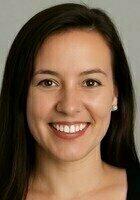
Verified Tutor
Philip
Bachelor in Arts, Neuroscience and Behavior
10+ years of tutoring
Columbia College, Columbia University
When it comes to academic achievement and standardized test prep, no two winning strategies are ever exactly alike. Because every student learns in their own unique way, my teaching style is designed to pinpoint each student's individual strengths and weaknesses to develop a customized tutoring experience. My 3+ years of experience as a science teacher in Morningside Heights and beyond have made me appreciate the power of one-on-one instruction and the great advantages that exceptional grades and test scores can provide during the college admissions process.
SAT Scores
Composite
1590
Math
800
Verbal
800
Writing
770
Q&A with Philip
With a strategy customized to address individual strengths and weaknesses, any student can greatly improve their test scores and academic performance.
Get Started in 60 Seconds!
Who needs tutoring?
No obligation. Takes ~1 minute.
Tutors with Similar Experience
Let's find your perfect tutor
Answer a few quick questions. We'll recommend the right plan and match you with a top 5% tutor.


